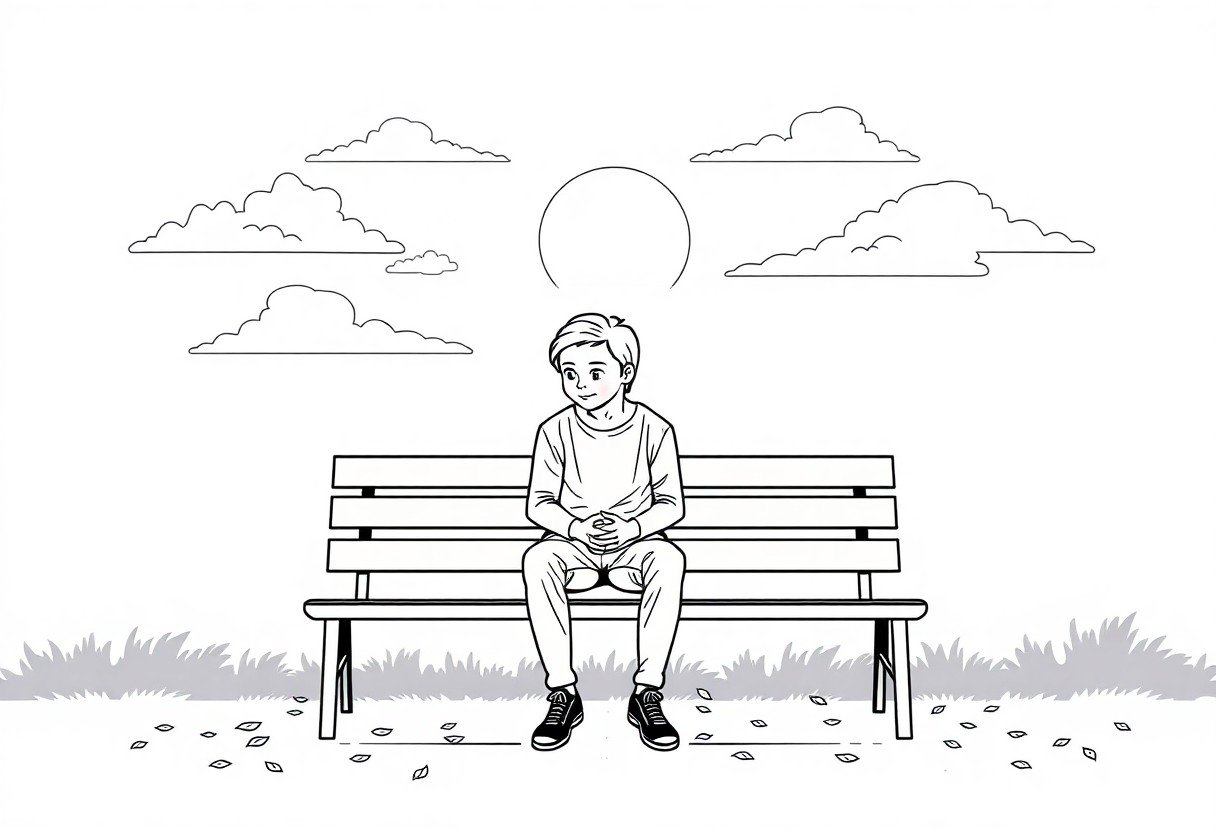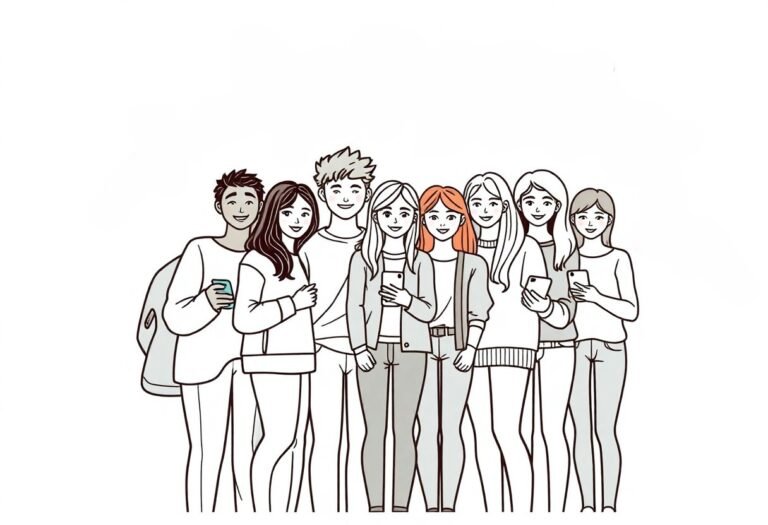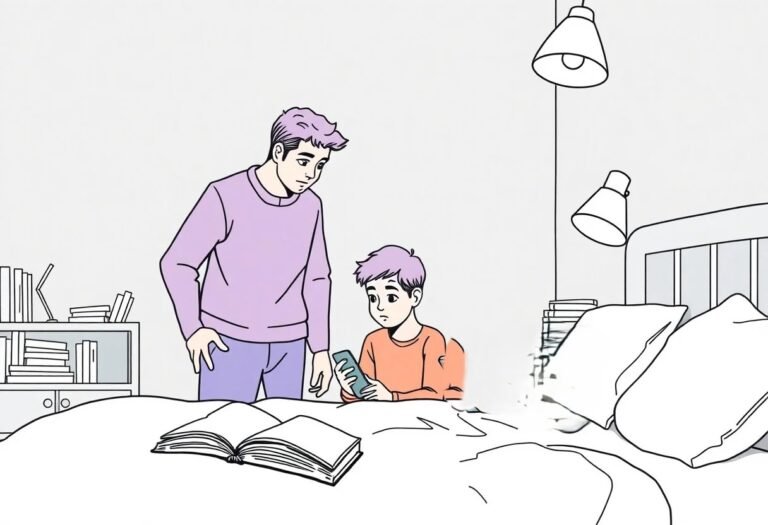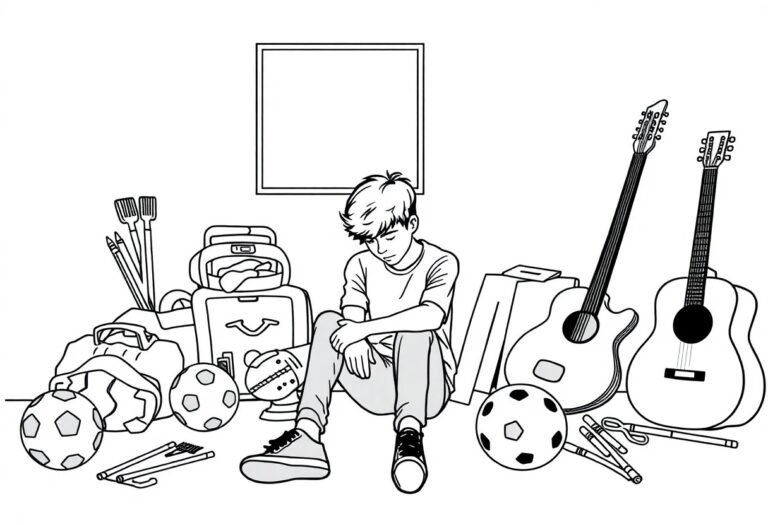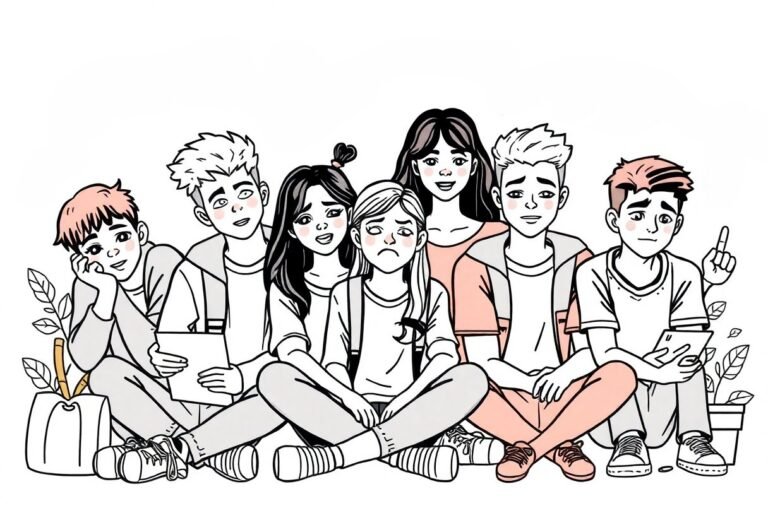When Should You Worry About A Teen’s Expressions Of Hopelessness?
There’s a delicate balance between typical adolescent moodiness and serious emotional distress. As a parent or guardian, it’s vital to recognise the signs that your teen’s expressions of hopelessness, especially in regard to when to worry about teen hopelessness, may indicate a deeper issue. While occasional feelings of despair can be normal, consistent or intense feelings may signal a need for intervention. Pay attention to changes in behaviour, sleep patterns, and interests. Understanding when to seek help can make a significant difference in your teen’s mental health and overall well-being.
Key Takeaways:
- Understand that feelings of hopelessness can signal underlying mental health issues, such as depression or anxiety, that may require professional attention.
- Pay attention to changes in behaviour; withdrawal from social activities, decline in academic performance, or changes in sleep and appetite can all be red flags.
- Encourage open communication; creating a safe space for your teen to express their feelings can help them feel supported and understood.
- Be aware of warning signs like talk of self-harm, substance abuse, or any expressions indicating a lack of worth or purpose that may require immediate intervention.
- Seek help from mental health professionals if hopelessness persists, as they can provide effective strategies and support tailored to the teen’s needs.
Understanding Expressions of Hopelessness
To effectively address and support your teen, it’s vital to understand what expressions of hopelessness truly mean. This emotional state often presents as a sense of overwhelming despair and a lack of confidence in the future. Recognising these signs early on can empower you to intervene and provide the necessary support, fostering a more productive dialogue and a path toward healing.
Defining Hopelessness in Teens
Around adolescence, many teens encounter intense emotional challenges that can surface as feelings of hopelessness. This state can manifest through negative thoughts about themselves, their relationships, and their future. Distinguishing these expressions from typical teenage angst is vital, as persistent hopelessness can point to deeper mental health issues that require attention.
Common Causes of Hopelessness
Above all, various factors can contribute to feelings of hopelessness in your teen, including academic pressure, social struggles, and family dynamics. Situations like bullying, trauma, or significant life changes may further exacerbate these feelings. By being aware of these potential triggers, you can better support your teen in navigating their emotional landscape.
To gain insight into the challenges your teen might be facing, consider how academic expectations often weigh heavily, leading to an overwhelming sense of inadequacy. Social difficulties, such as peer pressure or bullying, can leave them feeling isolated and despondent. Significant changes at home, like a divorce or relocation, may trigger feelings of instability, intensifying hopelessness. Understanding these underlying causes allows you to provide informed support and enable your teen to cultivate resilience and recovery.
Signs to Look For
If you notice your teen expressing hopelessness, it’s imperative to look for specific signs that may indicate deeper issues. These signs can include changes in their behaviour, emotional state, social interactions, and academic performance. Being aware of these indicators will help you approach the situation more effectively and support your teen in their time of need.
Behavioral Changes
At times, your teen may exhibit noticeable shifts in behaviour that can signal distress. This could include withdrawing from social activities, neglecting responsibilities, or experiencing a decline in academic performance. Pay attention to any sudden changes, as they could reflect underlying feelings of hopelessness.
Emotional Indicators
Emotional indicators can provide critical insights into your teen’s mental state. Your teen may express feelings of worthlessness, sadness, or despair through their words and actions. If they frequently seem disengaged, overwhelmed, or exhibit a lack of interest in previously enjoyed activities, these might be signs to take seriously. Additionally, keep an eye out for any statements they make about wanting to escape or feeling trapped. These sentiments can indicate significant emotional distress that requires immediate attention. Take the time to engage with them on these topics to foster a supportive environment.
To support your teen effectively, it’s important to approach them with empathy and understanding. Ask open-ended questions about how they’re feeling, and listen without judgment. Encourage them to share their thoughts and experiences, and validate their feelings. Recognise that their emotional indicators may stem from a variety of issues, such as academic pressures, relationship troubles, or even unresolved trauma. Acknowledging their pain and showing that you care can make a profound difference in their journey towards healing.
The Impact of Social Media
Once again, you should consider how social media can amplify feelings of hopelessness in teenagers. Platforms designed for connection can inadvertently foster isolation and negative self-perception. As your teen interacts online, it is vital to keep an eye on their engagement, as constant exposure to curated, idealised lives can distort their worldview, leading to feelings of inadequacy and despair.
Influences on Teen Mindset
Media plays a significant role in shaping your teen’s mindset. The messages they receive through social channels can impact their self-esteem, body image, and overall outlook on life. With a constant stream of idealised content, your teen might internalise harmful beliefs, paving the way for hopelessness if they feel they can’t measure up.
Cyberbullying and Hopelessness
The prevalence of cyberbullying greatly contributes to hopelessness among teens. As digital interactions increase, so do incidents of harassment and bullying, leaving emotional scars that can lead to severe feelings of worthlessness.
In fact, a teenager who experiences cyberbullying can face deep psychological impacts, including anxiety, depression, and suicidal thoughts. The anonymity of online platforms often emboldens bullies, making it harder for your teen to escape the torment. Regularly engaging with your child about their online experiences and fostering open communication can help mitigate these effects and encourage them to seek help when they feel overwhelmed.
Risk Factors for Severe Outcomes
Many factors can increase the risk of severe outcomes when a teen expresses feelings of hopelessness. These include:
- Previous mental health disorders
- Substance abuse
- History of self-harm
- Extreme family stress
- Social isolation
This combination of risk factors can heighten the urgency to seek professional help.
Mental Health Issues
For teens struggling with mental health issues, feelings of hopelessness may signify a more serious underlying condition. Conditions such as depression or anxiety disorders can trigger these sentiments and necessitate intervention.
Family Dynamics
Any instability or conflict within your teen’s family dynamics can significantly contribute to their feelings of hopelessness. A supportive, empathetic family environment is vital for fostering resilience and emotional stability.
Another key factor is the quality of communication within your family. When open dialogue is absent, or if you engage in hostile interactions, your teen may feel unheard or alienated. This emotional distance can exacerbate their struggles, making it vital to provide a safe space for sharing feelings. Building strong family bonds can help your teen develop better coping strategies and mitigate feelings of hopelessness.
When to Seek Help
Despite your desire to guide and support your teen, it’s important to acknowledge when professional help may be necessary. If expressions of hopelessness persist or worsen, responding promptly can significantly impact your teen’s mental health. Seeking assistance from a mental health professional can provide the tools and resources needed to address these feelings effectively.
Recognising Critical Situations
Around your teen, pay attention to any drastic changes in behaviour, such as withdrawal from friends and activities, decline in academic performance, or expressions indicative of self-harm. If these signs are present, it’s important to take them seriously, as they could represent a deeper issue that requires immediate intervention.
Approaching Conversations
The key to engaging your teen in conversations about hopelessness is to approach them with empathy and openness. Ensure that your teen feels safe discussing their feelings without judgment. This lays the groundwork for honest communication, allowing them to express themselves freely.
Understanding how to frame your conversations can make a significant difference. It’s important to actively listen and validate your teen’s feelings, showing them that you care and are there to support them. Avoid jumping to solutions or dismissing their emotions. Instead, encourage open dialogue by asking gentle questions, allowing them to share their experiences at their own pace. By demonstrating empathy and patience, you foster a trusting environment where your teen may feel more comfortable sharing their struggles.

Resources for Support
For parents and guardians, seeking out resources for support can be an important step in addressing their teens’ expressions of hopelessness. There are various channels available, including professional help, support groups, and hotlines that can provide valuable guidance and assistance tailored to your situation.
When to Worry About Teen Hopelessness
Identifying the right moment to be concerned about your teen’s feelings of hopelessness can be challenging. It’s essential to understand that persistent signs of distress should not be overlooked, as they may indicate the need for immediate intervention.
Professional Help
Across many communities, mental health professionals, including therapists and counselors, can offer specialized services for your teen. These experts are trained to identify and address the underlying issues contributing to feelings of hopelessness, providing coping strategies and therapeutic support that can lead to improvement.
Support Groups and Hotlines
The availability of support groups and hotlines can be a lifeline for both you and your teen. These resources provide immediate access to individuals who understand what you are going through and can offer support, empathy, and understanding in a safe environment.
Further, reaching out to support groups and hotlines can connect you with professionals and volunteers dedicated to helping teens navigate their feelings of hopelessness. Through these platforms, you can find anonymity, allowing your teen to speak freely. Many organisations offer 24/7 hotlines for immediate assistance, and support groups can provide a sense of belonging, helping teens realise they are not alone in their struggles. Engaging with these resources can be a valuable step towards healing and recovery.
To wrap up
Ultimately, you should be concerned about your teen’s expressions of hopelessness when they seem pervasive, frequent, or accompanied by significant changes in behaviour, mood, or academic performance. If you notice any signs that point towards depression or self-harm, it’s important to engage in open conversations with your teen and seek professional help if needed. Addressing feelings of hopelessness early can significantly improve their emotional well-being and overall mental health.
FAQ
Q: What are some common signs of hopelessness in teens?
A: Signs of hopelessness in teens can include persistent sadness, loss of interest in activities they once enjoyed, changes in sleep or eating patterns, withdrawal from friends and family, difficulty concentrating, or expressing feelings of worthlessness. Additionally, they may frequently talk about feeling trapped or having a bleak outlook on their future.
Q: How can I approach my teen if I notice signs of hopelessness?
A: It’s important to create a safe and open environment for your teen to express their feelings. Start by choosing a quiet time to talk without distractions. Use open-ended questions to encourage sharing, such as, “I’ve noticed you seem a bit down lately; do you want to talk about what’s on your mind?” Listen actively and validate their feelings without judgment, letting them know you are there for support.
Q: When should I seek professional help for my teen’s hopelessness?
A: If your teen’s expressions of hopelessness persist for an extended period, worsen over time, or are accompanied by thoughts of self-harm or suicide, it’s necessary to seek professional help. Seeking support from a mental health professional, such as a psychologist or counsellor, can provide the necessary guidance. Early intervention can be beneficial in addressing underlying issues.
Q: Can hopelessness in teens be linked to underlying mental health issues?
A: Yes, feelings of hopelessness can often be a symptom of underlying mental health conditions such as depression, anxiety, or other mood disorders. If a teen frequently expresses hopelessness, it can indicate that they might be experiencing more severe emotional distress. A comprehensive assessment by a mental health professional can help identify any underlying issues and determine an appropriate treatment plan.
Q: What role can parents play in alleviating their teens’ feelings of hopelessness?
A: Parents can play a significant role in alleviating feelings of hopelessness by fostering a supportive, open, and non-judgmental environment. Encourage regular communication and check in frequently on their emotional well-being. Additionally, engaging in activities together, promoting healthy coping strategies, and being proactive in seeking professional help when needed can all contribute positively to a teen’s mental health.
Check your mental health symptoms on NHS.
Mental Health in Children and Adolescents | Mental Health and Demographics

